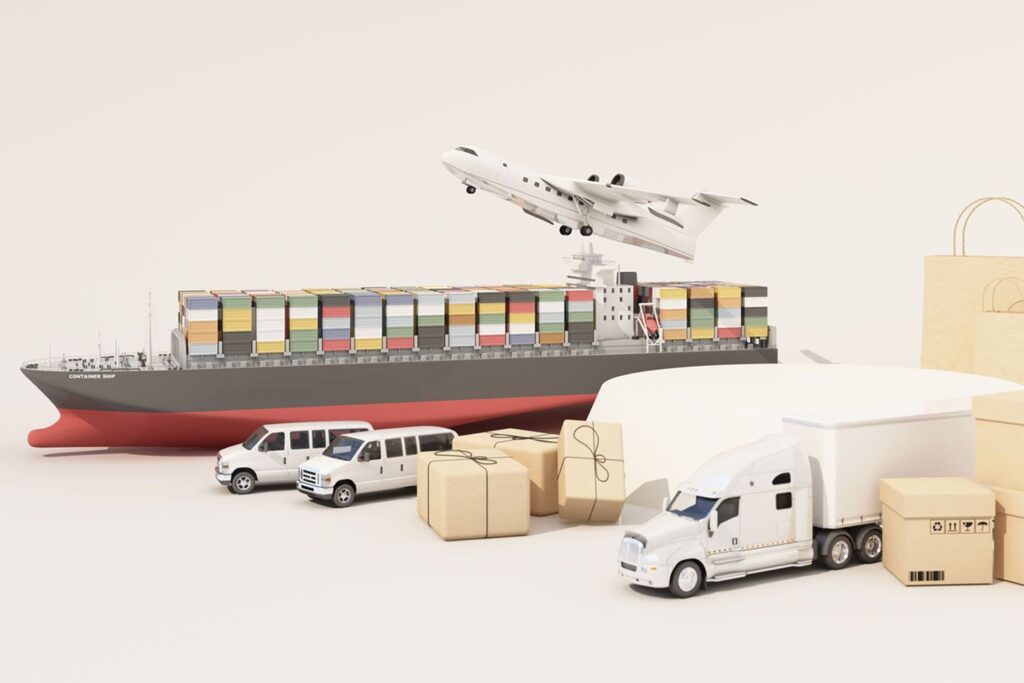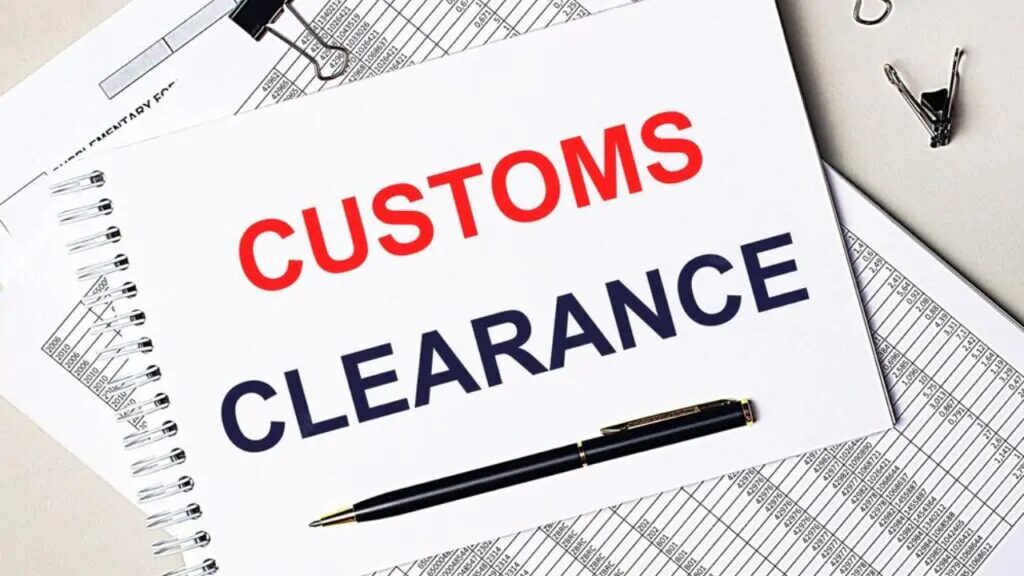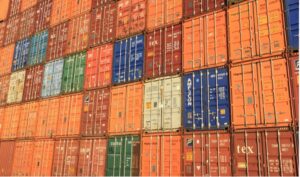Cyprus is a small island country in the Mediterranean Sea, with a population of about 1.2 million people. It is a member of the European Union (EU) and the Eurozone, and has a strategic location between Europe, Asia, and Africa. Cyprus is also a popular tourist destination, attracting millions of visitors every year.
If you are an importer who wants to source products from China and ship them to Cyprus, you may face some challenges and complexities along the way. China is the world’s largest exporter of goods, and has a vast and diverse manufacturing base. However, shipping from China to Cyprus involves crossing international borders, dealing with customs regulations, choosing the right shipping method, and more.
Understanding customs regulations and requirements

One of the most important aspects of shipping from China to Cyprus is understanding and complying with the customs regulations and requirements of both countries. Customs is the authority that controls the movement of goods across borders, and enforces the laws and policies of the government. Customs can inspect, examine, detain, or seize your shipment if they find any irregularities or violations.
As a member of the EU, Cyprus follows the common customs rules and procedures of the EU. This means that if you are shipping from another EU country to Cyprus, you do not need to pay any customs duties or taxes, or submit any customs declarations. However, if you are shipping from a non-EU country like China, you need to follow the import rules and regulations of the EU and Cyprus.
Some of the customs regulations and requirements that you need to be aware of when shipping from China to Cyprus are:
- You need to have an EORI number (Economic Operators Registration and Identification number), which is a unique identifier for traders and businesses that are involved in importing or exporting goods to or from the EU. You can apply for an EORI number online through the Cyprus Customs website.
- You need to classify your goods according to the Harmonized System (HS) code, which is a standardized system of naming and numbering products for customs purposes. The HS code determines the customs duties and taxes that apply to your goods, as well as any restrictions or prohibitions. You can find the HS code of your goods by using the online tool of the World Customs Organization (WCO), or by consulting with your supplier or freight forwarder.
- You need to value your goods accurately and declare them on the customs invoice. The value of your goods is the total amount that you paid or will pay for them, including the cost of the goods, the freight charges, the insurance fees, and any other expenses. The value of your goods affects the amount of customs duties and taxes that you need to pay, as well as the customs clearance process. You need to provide proof of the value of your goods, such as invoices, receipts, contracts, or bank statements.
- You need to check the origin of your goods and provide a certificate of origin if required. The origin of your goods is the country where they were wholly obtained or produced, or where they underwent their last substantial transformation. The origin of your goods determines whether they are eligible for any preferential treatment or reduced tariffs under the trade agreements between the EU and China. You can obtain a certificate of origin from your supplier or from the local chamber of commerce in China.
- You need to comply with the product standards and regulations of the EU and Cyprus. Depending on the type and nature of your goods, you may need to meet certain quality, safety, health, environmental, or technical requirements, and obtain the necessary certifications, licenses, or permits. Some of the common product standards and regulations that apply to imports in the EU are CE marking, REACH, RoHS, WEEE, and GDPR. You can find more information on the product standards and regulations of the EU on the EU Trade Helpdesk website.
Common pitfalls to avoid when shipping from China to Cyprus

Shipping from China to Cyprus can be a complex and risky process, especially if you are not familiar with the customs regulations and requirements, or if you do not have a reliable partner to assist you. Here are some of the common pitfalls that you should avoid when shipping from China to Cyprus:
- Choosing the wrong supplier. Not all suppliers in China are trustworthy, reliable, or professional. Some may provide you with low-quality products, inaccurate or incomplete documents, or fraudulent certificates. To avoid this, you should do your due diligence and research on the supplier, check their reputation and credentials, ask for references and samples, and verify their certificates and licenses.
- Underestimating the shipping costs. Shipping from China to Cyprus can be expensive, depending on the shipping method, the weight and volume of your goods, the distance and transit time, and the customs duties and taxes. To avoid this, you should compare the shipping rates and options of different carriers or freight forwarders, negotiate the best terms and conditions, and factor in all the possible fees and charges that may apply to your shipment.
- Overlooking the customs clearance process. Customs clearance is a crucial and often challenging part of shipping from China to Cyprus. If you do not prepare the required documents, classify and value your goods correctly, or comply with the product standards and regulations, you may face delays, fines, penalties, or confiscation of your goods. To avoid this, you should familiarize yourself with the customs regulations and requirements of both countries, consult with your supplier or freight forwarder, and hire a customs broker or agent if necessary.
- Ignoring the insurance coverage. Shipping from China to Cyprus involves many risks and uncertainties, such as damage, loss, theft, or delay of your goods. If you do not have adequate insurance coverage, you may suffer significant losses or liabilities. To avoid this, you should purchase a comprehensive insurance policy that covers your goods from the point of origin to the point of destination, and that compensates you for any potential damages or losses.
Choosing the right shipping method

Another important aspect of shipping from China to Cyprus is choosing the right shipping method for your goods. There are mainly three shipping methods that you can use: sea freight, air freight, and courier service. Each shipping method has its own advantages and disadvantages, depending on your needs and preferences. Here is a brief comparison of the three shipping methods:
- Sea freight. Sea freight is the most common and cost-effective shipping method for large and heavy shipments. Sea freight involves transporting your goods by container ships from the port of origin to the port of destination. The main advantages of sea freight are its low cost, high capacity, and environmental friendliness. The main disadvantages of sea freight are its long transit time, high risk of damage or loss, and complex customs clearance process. Sea freight usually takes about 30 to 40 days from China to Cyprus, and the average cost is about $1,000 to $2,000 per 20-foot container.
- Air freight. Air freight is the fastest and most reliable shipping method for urgent and time-sensitive shipments. Air freight involves transporting your goods by cargo planes from the airport of origin to the airport of destination. The main advantages of air freight are its speed, security, and convenience. The main disadvantages of air freight are its high cost, low capacity, and environmental impact. Air freight usually takes about 5 to 10 days from China to Cyprus, and the average cost is about $5 to $10 per kilogram.
- Courier service. Courier service is the easiest and most convenient shipping method for small and light shipments. Courier service involves transporting your goods by express delivery companies, such as DHL, FedEx, UPS, or TNT, from the door of origin to the door of destination. The main advantages of courier service are its simplicity, efficiency, and tracking. The main disadvantages of courier service are its high cost, low capacity, and limited control. Courier service usually takes about 3 to 7 days from China to Cyprus, and the average cost is about $15 to $20 per kilogram.
Documentation needed for shipping from China to Cyprus

When shipping from China to Cyprus, you need to prepare and provide the following documents for customs clearance and other purposes:
- Commercial invoice. A commercial invoice is a document that shows the details of the transaction between the seller and the buyer, such as the names and addresses of the parties, the description and value of the goods, the terms and conditions of the sale, and the HS code and origin of the goods. A commercial invoice is used to determine the customs duties and taxes, as well as to verify the value and origin of the goods.
- Packing list. A packing list is a document that shows the details of the packaging and contents of the shipment, such as the number and type of packages, the weight and volume of each package, the marks and numbers of each package, and the description and quantity of the goods. A packing list is used to facilitate the loading, unloading, and inspection of the shipment, as well as to verify the quantity and condition of the goods.
- **Bill of lading (B/L) or air waybill AWB)**. A bill of lading (B/L) or an air waybill (AWB) is a document that shows the details of the contract between the carrier and the shipper, such as the names and addresses of the parties, the description and value of the goods, the mode and route of transportation, and the delivery instructions. A B/L or an AWB is used to prove the ownership and receipt of the goods, as well as to track and monitor the shipment.
- Certificate of origin. A certificate of origin is a document that shows the origin of the goods, as determined by the rules of origin of the trade agreement between the EU and China. A certificate of origin is used to claim any preferential treatment or reduced tariffs under the trade agreement, as well as to verify the origin of the goods.
- Product certificates, licenses, or permits. Depending on the type and nature of your goods, you may need to obtain and provide certain product certificates, licenses, or permits that prove that your goods meet the product standards and regulations of the EU and Cyprus. Some of the common product certificates, licenses, or permits that apply to imports in the EU are CE marking, REACH, RoHS, WEEE, and GDPR. You can find more information on the product certificates, licenses, or permits of the EU on the EU Trade Helpdesk website.
You should prepare and provide these documents in advance, and make sure that they are accurate, complete, and consistent. Any errors, omissions, or discrepancies in your documents may cause delays, fines, penalties, or confiscation of your goods. You should also keep copies of your documents for your records and reference.
Dealing with customs duties and taxes

When shipping from China to Cyprus, you need to pay the customs duties and taxes that apply to your goods, as well as any other fees and charges that may arise during the customs clearance process. The customs duties and taxes are calculated based on the HS code, the value, and the origin of your goods. The fees and charges may vary depending on the carrier, the freight forwarder, the customs broker, or the customs authority.
Some of the customs duties and taxes that you need to pay when shipping from China to Cyprus are:
- Import duty. Import duty is a tax that is levied on the import of goods from a non-EU country like China to an EU country like Cyprus. The import duty rate depends on the HS code and the origin of your goods. The import duty rate for goods originating from China ranges from 0% to 25%, depending on the product category. You can find the import duty rate of your goods by using the online tool of the EU Trade Helpdesk website.
- Value-added tax (VAT). VAT is a tax that is levied on the consumption of goods and services in the EU. The VAT rate depends on the value and the type of your goods. The VAT rate for most goods imported to Cyprus is 19%, but some goods may have a reduced rate of 5% or 9%, or be exempt from VAT. You can find the VAT rate of your goods by using the online tool of the EU Trade Helpdesk website.
- Excise duty. Excise duty is a tax that is levied on the import of certain goods that are considered harmful or undesirable, such as alcohol, tobacco, fuel, or sugar. The excise duty rate depends on the quantity and the type of your goods. The excise duty rate for goods imported to Cyprus varies from €0.02 to €1,000 per unit, depending on the product category. You can find the excise duty rate of your goods by using the online tool of the EU Trade Helpdesk website.
You should pay the customs duties and taxes before or upon the arrival of your goods at the customs office of entry in Cyprus. You can pay the customs duties and taxes by using one of the following methods:
- Cash. You can pay the customs duties and taxes in cash at the customs office of entry in Cyprus. However, this method may not be convenient or secure, especially if you have a large amount to pay.
- Credit or debit card. You can pay the customs duties and taxes by using your credit or debit card at the customs office of entry in Cyprus. However, this method may incur additional fees or charges, such as transaction fees, currency conversion fees, or interest rates.
- Bank transfer. You can pay the customs duties and taxes by transferring the amount from your bank account to the bank account of the customs authority in Cyprus. However, this method may take some time and require some paperwork, such as invoices, receipts, or proof of payment.
- Deferred payment. You can pay the customs duties and taxes by using a deferred payment scheme, which allows you to postpone the payment until a later date, usually within 30 days. However, this method may require you to have a guarantee or a security deposit, as well as to pay interest or penalties for late payment.
You should keep the proof of payment of the customs duties and taxes for your records and reference. You should also be aware of any other fees and charges that may apply to your shipment, such as handling fees, storage fees, inspection fees, or demurrage fees. You should check and confirm the fees and charges with your carrier, your freight forwarder, your customs broker, or your customs authority.
Tips for navigating customs smoothly

Customs clearance is a critical and often complicated part of shipping from China to Cyprus. If you want to avoid any delays, fines, penalties, or confiscation of your goods, you should follow these tips for navigating customs smoothly:
- Prepare and provide the required documents. As mentioned earlier, you need to prepare and provide the following documents for customs clearance: commercial invoice, packing list, B/L or AWB, certificate of origin, and product certificates, licenses, or permits. You should make sure that these documents are accurate, complete, and consistent, and that they match the actual goods and the information on the shipping labels. You should also keep copies of these documents for your records and reference.
- Classify and value your goods correctly. As mentioned earlier, you need to classify and value your goods according to the HS code, the value, and the origin of your goods. You should make sure that these information are correct and consistent, and that they reflect the true nature and value of your goods. You should also provide proof of the HS code, the value, and the origin of your goods, such as invoices, receipts, contracts, or bank statements.
- Comply with the product standards and regulations. As mentioned earlier, you need to comply with the product standards and regulations of the EU and Cyprus, depending on the type and nature of your goods. You should make sure that your goods meet the quality, safety, health, environmental, or technical requirements, and that you have the necessary certifications, licenses, or permits. You should also provide proof of the product standards and regulations, such as CE marking, REACH, RoHS, WEEE, and GDPR.
- Pay the customs duties and taxes. As mentioned earlier, you need to pay the customs duties and taxes that apply to your goods, as well as any other fees and charges that may arise during the customs clearance process. You should make sure that you pay the correct amount and in the right currency, and that you use the most convenient and secure method of payment. You should also keep the proof of payment of the customs duties and taxes for your records and reference.
- Track and monitor your shipment. You should track and monitor your shipment from the point of origin to the point of destination, and stay updated on the status and location of your goods. You should also communicate and coordinate with your carrier, your freight forwarder, your customs broker, or your customs authority, and inform them of any changes or issues that may affect your shipment. You should also be prepared to respond to any queries or requests from the customs officials, and provide any additional information or documents that they may require.
Working with a freight forwarder or shipping agent

Shipping from China to Cyprus can be a daunting and difficult task, especially if you are not experienced or knowledgeable about the customs regulations and requirements, or if you do not have a reliable partner to assist you. That is why you may want to consider working with a freight forwarder or a shipping agent, who can help you with the whole shipping process, from sourcing to delivery.
A freight forwarder or a shipping agent is a company or an individual that specializes in arranging and managing the transportation of goods from one place to another. They can offer you a range of services, such as:
- Sourcing and selecting the best supplier. They can help you find and choose the best supplier in China, based on your needs and preferences. They can also help you negotiate the best terms and conditions, and verify the quality and quantity of the goods.
- Choosing and booking the best shipping method. They can help you choose and book the best shipping method for your goods, based on your budget, timeline, and requirements. They can also help you compare the shipping rates and options of different carriers or freight forwarders, and negotiate the best deals and discounts.
- Preparing and providing the required documents. They can help you prepare and provide the required documents for customs clearance and other purposes, such as commercial invoice, packing list, B/L or AWB, certificate of origin, and product certificates, licenses, or permits. They can also help you classify and value your goods correctly, and comply with the product standards and regulations.
- Paying the customs duties and taxes. They can help you pay the customs duties and taxes that apply to your goods, as well as any other fees and charges that may arise during the customs clearance process. They can also help you use the deferred payment scheme, if you qualify for it.
- Navigating the customs clearance process. They can help you navigate the customs clearance process smoothly and efficiently, by communicating and coordinating with the customs officials, and providing any additional information or documents that they may require. They can also help you deal with any delays, fines, penalties, or confiscation of your goods, and resolve any disputes or issues that may arise.
- Tracking and monitoring your shipment. They can help you track and monitor your shipment from the point of origin to the point of destination, and keep you updated on the status and location of your goods. They can also help you handle any changes or issues that may affect your shipment, and ensure that your goods are delivered safely and on time.





